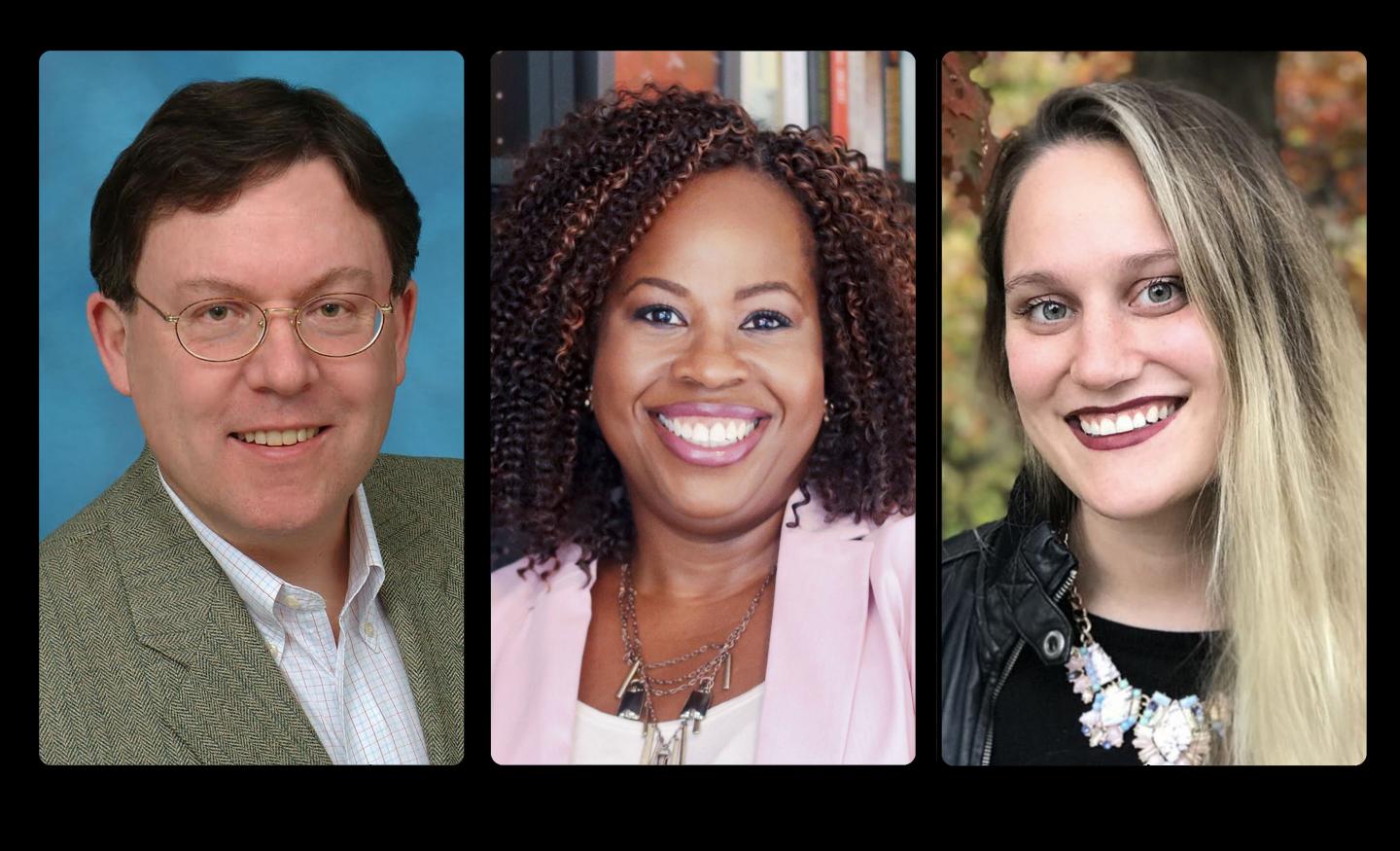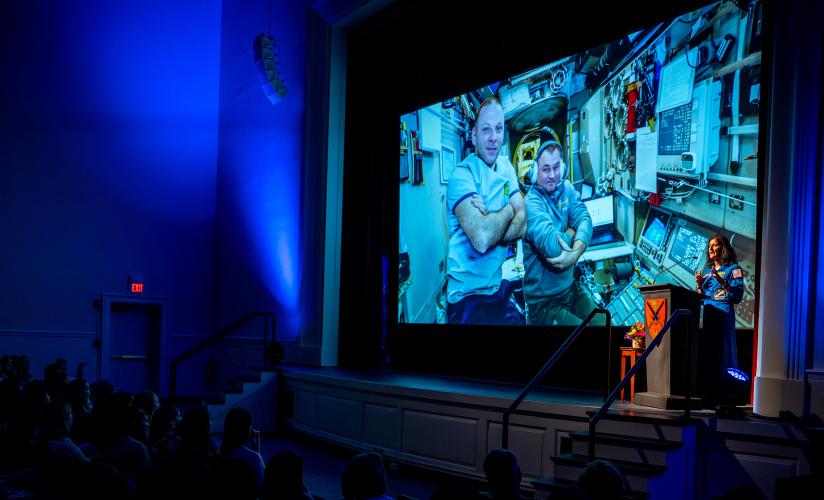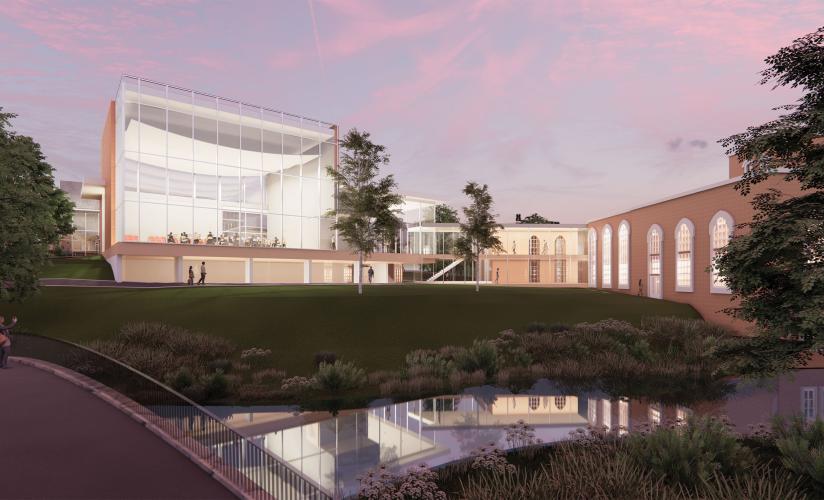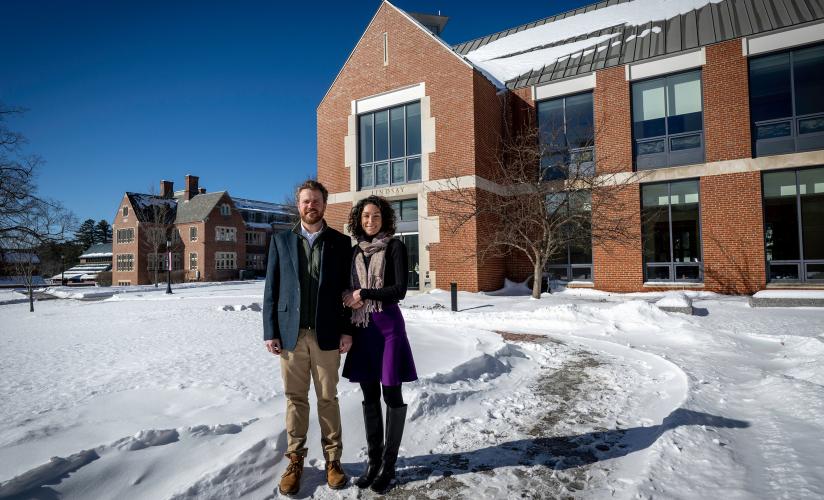

Excellence in Character and Scholarship series continues with trio of alumni in academia.
BY KRISTIN DUISBERG
Being a teacher isn’t just what you do. It’s who you are.
That’s how Dr. Tiffany Gill ’92, an associate professor of history at New Jersey’s Rutgers University, summed up not only her own calling and career but that of her fellow panelists during “Educators for the Greater Good,” an SPS alumni webinar that took place on Wednesday, Jan. 10. Gill was joined by Bronwen Callahan ’08, a history teacher at the Harker Upper School in San Jose, California, and Dr. Stephen Post ’69, professor of family, population and preventive medicine at Stony Brook University in New York, in conversation with Rector Kathy Giles and SPS Science Teacher Dr. Theresa Gerardo-Gettens P’07,’11. The hourlong event was the second of the 2023-24 academic year to examine the myriad ways in which SPS graduates pursue vocations and live lives that exemplify the School’s mission to foster excellence in character and scholarship.
Perhaps unsurprisingly, all three panelists said St. Paul’s School played a formative role in their decision to become educators. Callahan, the daughter of two SPS teachers, spoke about spending the first two decades of her life on the SPS grounds, and the fact that she was able to explore the wide range of pursuits that interested her — languages, history, travel, art, religion, literature and film — during her time as an SPS student. Gill recalled studying the Revolutionary War during her Third Form year and realizing for the first time that “history was not just a set of facts to be memorized and regurgitated … but contested terrain, [and] that our understandings of the past have as much to do with perspective and interpretation and whose memories… are considered worth chronicling.” Post shared the “steep learning curve” he found himself on as a new student, confused about whether the Babylon being discussed in his religion class was the same one he was born in on the south shore of Long Island, and the role his formmates played in helping him expand his worldview.
As graduates from different decades who teach in the distinctly different environments of high school, college and medical school, Post, Gill and Callahan identified themselves as being at different places in their journeys as educators — while agreeing that their careers were indeed accurately described as “journeys.” Callahan served in the Peace Corps and earned a master’s degree in theology before finding her place teaching high school. Gill went to college intending to become a lawyer, until a mentor — the first Black female professor she had met — told her she was a scholar. Post studied marine biology and spent several years working in pediatric endocrinology and immunology before deciding he was not bound to be a scientist and pursuing a doctorate in psychology that’s led to his life’s work running medical school programs focused on compassionate care and geriatric populations. “I would say that I’m mostly the ‘who’da thunk it?’ kind of scholar, if you will,” he said.
Giles noted that Post’s ‘who’da thunk it?’ path was one she’d heard alumni articulate time and again during the three years of SPS alumni panels that began with the School’s celebration of 50 years of coeducation in 2021-22; one that carried an important message for today’s students. “Many young people right now feel as if they’re supposed to have the plan, and the plan is supposed to take them to the destination,” she said. “And for most of us, life doesn’t work that way, much to our benefit, joy and delight.”
Throughout the hour, all three panelists spoke about the particular joys they derive from their work — among others, having opportunities to learn something new every day, helping their students transform, sharing knowledge that improves the lives of others in tangible ways — as well as the contributions they have made. Gill spoke about helping her students “see history in color” and shared the hope that her teaching and scholarship might “raise up generations of world-changing, curious global citizens who are equipped with knowledge and ready to face the challenges that are ahead of them.”
Post spoke about his role contributing to the culture of compassionate care in modern medicine, noting that “every time one of my students is asked to become a chief resident at Boston Children’s or wherever it may be, and they have that little extra something, that quality of paying attention to the human and emotional aspects of their patient’s experience … that’s more important to me than writing another paper or whatever.”
Callahan referenced her time in the Peace Corps, recalling the words of a program coordinator who quickly disabused her of the idea she was there to change the world. “She said you’ve had a successful Peace Corps career if at the end of those two years … you miss someone and someone misses you. And that stuck with me…. I’m not going to change every single student. [But] if in 10 years or so, one of my students still remembers me as a good teacher, I’ll be very happy.”
The hour ended as each of these webinars has, with the panelists giving advice to their SPS selves: Callahan said she’d try club hockey, Post quoted Eleanor Roosevelt and Gill said she’d tell herself she belonged at SPS. The series will conclude in May with an event planned during Anniversary Weekend, May 3 and 4.



